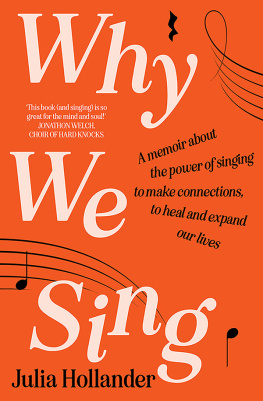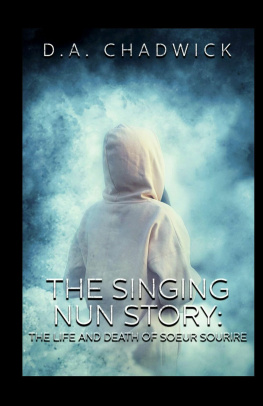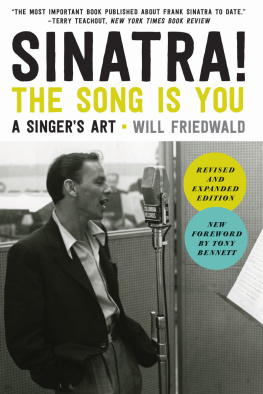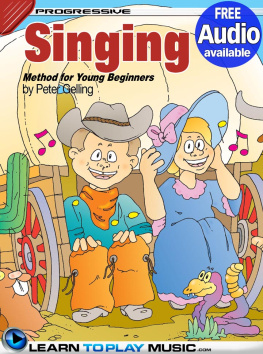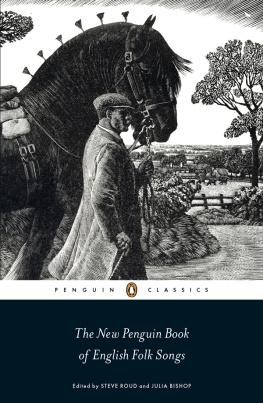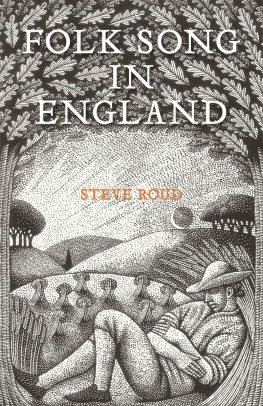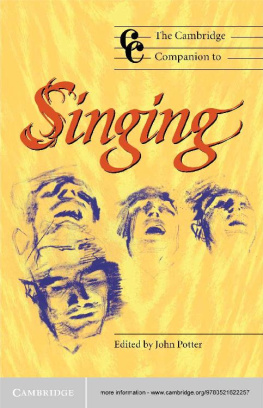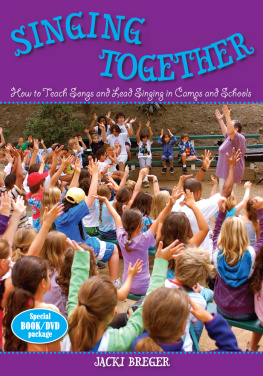ROUTLEDGE LIBRARY EDITIONS:
FOLK MUSIC
Volume 4
THE FELLOWSHIP OF SONG
THE FELLOWSHIP OF SONG
Popular Singing Traditions in East Suffolk
GINETTE DUNN
First published in 1980 by Croom Helm Ltd
This edition first published in 2016
by Routledge
2 Park Square, Milton Park, Abingdon, Oxon OX14 4RN
and by Routledge
711 Third Avenue, New York, NY 10017
Routledge is an imprint of the Taylor & Francis Group, an informa business
1980 Ginette Dunn
All rights reserved. No part of this book may be reprinted or reproduced or utilised in any form or by any electronic, mechanical, or other means, now known or hereafter invented, including photocopying and recording, or in any information storage or retrieval system, without permission in writing from the publishers.
Trademark notice: Product or corporate names may be trademarks or registered trademarks, and are used only for identification and explanation without intent to infringe.
British Library Cataloguing in Publication Data
A catalogue record for this book is available from the British Library
ISBN: 978-1-138-94398-8 (Set)
ISBN: 978-1-315-66734-8 (Set) (ebk)
ISBN: 978-1-138-95202-7 (Volume 4) (hbk)
ISBN: 978-1-138-12261-1 (Volume 4) (pbk)
ISBN: 978-1-315-66732-4 (Volume 4) (ebk)
Publishers Note
The publisher has gone to great lengths to ensure the quality of this reprint but points out that some imperfections in the original copies may be apparent.
Disclaimer
The publisher has made every effort to trace copyright holders and would welcome correspondence from those they have been unable to trace.
The
Fellowship
of Song
Popular Singing Traditions
in East Suffolk
Ginette Dunn
CROOM HELM LONDON
1980 Ginette Dunn
Croom Helm Ltd, 2-10 St Johns Road, London SW11
British Library Cataloguing in Publication Date
Dunn, Ginette
The fellowship of song (Croom Helm social history series).
1. Folk-songs, English England Blaxhall Social aspects 2. Folk-songs, English England Snape Social aspects
I. Title
301.57 ML 3652
ISBN 0-7099-0044-9
Printed and bound in Great Britain by
Redwood Burn Limited
Trowbridge & Esher
CONTENTS
Ordnance Survey Map of Snape and Blaxhall
Dedicated to
the memories of Bob Hart
Priscilla Savage and
Percy Webb
I have many people to thank for making this study possible, and those that I thank most deeply are the ones who made this an exercise in affection and friendship as well as a discovery of another way of life.
In Suffolk, I am most indebted to Dorrie Hart who has, through her continued hospitality during my numerous visits, made my field-work a very warm and enjoyable experience, and to her father-in-law, Bob Hart, who spent hours of his time talking and singing to me, and who greatly helped me in my field-work by taking me into local pubs with him and introducing me to other singers. I am only sorry that he did not live to see the completion of this book.
I am also extremely grateful for the kindness and help of the Bennett family, George Bennett, Stanley Day, Arthur Drewery, Lil Durrant, Bessie Hammond, David Hart, Reg Jay, Reuben Kerridge, James Knights, Abraham Ling, Mr and Mrs Ben Ling, Bessie Ling, Geoff Ling, Percy Ling, Ruby and William Ling, Alice and Christopher Messenger, Ethel Pearce, Mr and Mrs Cyril Poacher, Mr and Mrs Frank Reeve, Wickets Richardson, Mr and Mrs Lenny Savage, Mrs James Smith, Clive Woolnough and Mr and Mrs Frank Woolnough. Several singers have died since I began my research and I wish to acknowledge my debt to them: Basil Bennett, Priscilla Savage, James Smith, Percy Webb and Dick Woolnough, and also the melodeon player Fred Pearce.
I am grateful to the landlord and landlady of the Ship Inn, Blaxhall, Mr and Mrs Jack Saunders, to the landlady at the Butley Oyster, Mrs Vera Noble, and to the landlords of the Snape Key and Snape Crown for welcoming me into their pubs and allowing me to record there on numerous occasions.
George Ewart Evans, who lived in Blaxhall when his wife was schoolmistress there, has been kind enough to spend time talking to me about the area, and to suggest bibliographical sources and hypotheses to account for local social traits. I am very grateful for his help.
I wish also to acknowledge the support of Tony Green and Stewart Sanderson of the Institute of Dialect and Folk life Studies at the University of Leeds, where I undertook this research for my doctorate degree, and the untiring help of the technician, Reg Ross, in supplying me with equipment for my field trips. My gratitude also to the Association of Commonwealth Universities and the British Council for the financial support that made this study possible.
I am indebted to my husband Keith Sullivan for his love and help during the final preparations for this book, completed so near the birth of our first child, and to our friends Simon lichman and Rivanna Miller for their involvement in our many long conversations about singers, songs and traditions. And to the people of Snape and Blaxhall we send our gratitude and love.
My first field-trip to Snape was on 16 April, 1974. I saw the village spread out as I passed the church at the crossroads and followed the village street down the hill as far as the Maltings on the Alde River. Blaxhall lay beyond, clustering around its centres of pub, church and common.
In these two villages, and probably in many others throughout England, a kind of subversive activity has been going on which is innate in the communities, unconsciously honoured and carried on against many odds, both environmental and temporal. This activity is singing, most notably in the local pubs and at local gatherings; it is subversive because its practice and continuance is an affirmation of community (and the necessary ties of community with past and thus with tradition), and a denial of modern society and its spatial fragmentation and temporal disjointedness. The singers are not rebels: their vote is strongly Liberal, given ambience by Toryism and socialism. But it is the nature of their very conservatism that makes their activity subversive, since it denies innovative transitory modernity and supports the values and consciousness of a past, whether real or ideal, with which they identify.
The songs sung, those remembered, the singers now dead whose lives are recalled each time an old favourite is performed, all connect the present with the past. The primary aesthetic concern within these singing traditions is that a man should sing, whatever the objective quality of his performance; and a song should tell a good story. It is clear that the words of the songs and the old familiar tunes are first valued existentially, as a way of evoking a state of timelessness, as a disguise for the chronological, the personal, the specific. Also, the words of songs remembered and performed give a virtual exegesis, if not of the singers actual life, then of his values; and these are, as always, the values of the past, the learnt opinions and knowledge of a community-based man. Thus, the songs in performance affirm past and the ties of present with past, and the individual singer assumes a special role in performance since he becomes spokesman for a group and gives voice not only to personal but also to social concerns, dynamics and emotions.


